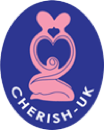Early Pregnancy Symptoms
Useful information for early pregnancy symptoms.
Early Pregnancy Symptoms
All women are different and therefore may notice different signs and symptoms of early pregnancy. The most common early pregnancy symptoms are explained below; you may however, experience all, some or none of these pregnancy symptoms. Generally if you have a regular monthly menstrual cycle, missing a period is the most common first sign of pregnancy. Sometimes when the pregnancy implants there can be very light bleeding which can be mistaken for a period. If you have an irregular menstrual cycle you are less likely to know that you are pregnant so will need to look for other signs.
Feeling Sick and Vomiting
Morning sickness is a common early pregnancy symptom; it usually starts when you are around four to six weeks pregnant. It is called morning sickness but it can happen at any time of the day or night. Many women experience a queasy feeling, or nausea without sickness. If you're being sick all the time and are unable to keep any food or fluids down, you should contact your GP for further advice.
Changes In Your Breasts
You will notice changes in your breasts from when you are about 4- 6 weeks pregnant. Your breasts possibly will feel tender to touch, which may be similar to how they feel before a period only a little more intense. It is also common to experience a prickling or tingling sensation in the region of your nipples. You may notice that the nipples darken and stand out and your nipples may have small bumps present; often the veins under the surface of your skin are more visible. These changes are due to hormones which increase the blood supply to your breasts. The tenderness tends to be most common in early pregnancy and eases as your pregnancy progresses.
Frequent Trips to the Toilet
During the first few weeks of pregnancy it is common to pass urine more often than usual and can also happen during the night. Once the embryo has implanted a hormone called Human Chorionic Gonadotrophin (hCG) is produced which increases the blood flow to the pelvic region and this causes the bladder to become more sensitive. Human Chorionic Gonadotrophin can be detected in the urine as early as 7-9 days after fertilisation and is used as an indicator of pregnancy in most over-the-counter pregnancy tests. It is responsible for increasing the volume of blood in the body which means that the kidneys have to work harder to excrete waste which in turn results in an increased frequency of passing urine. It is common to get urinary tract infections in early pregnancy, if you experience any burning or stinging it is advisable to see your GP for further advice.
Feeling Very Tired
During the first few weeks of early pregnancy it is very common to feel tired, or even exhausted. Tiredness is most common in the first and third trimester. At times it can be overwhelming; this is due to hormonal changes taking place in your body to support your baby during the early stages of pregnancy.
Other common early pregnancy symptoms which may occur are:
- Constipation
- Increased vaginal discharge
- Altered sense of taste, which many women describe as a metallic taste
- Craving new foods
- No longer liking some foods or drinks that you previously enjoyed, such as tea, coffee and/or fatty foods
- Losing interest in tobacco
- Increased sense of smell
If you feel you may be pregnant and have any of the above early pregnancy symptoms it is worth performing a pregnancy test. If your test is positive, it is possible to do a reassurance early pregnancy scan from 6 weeks.


